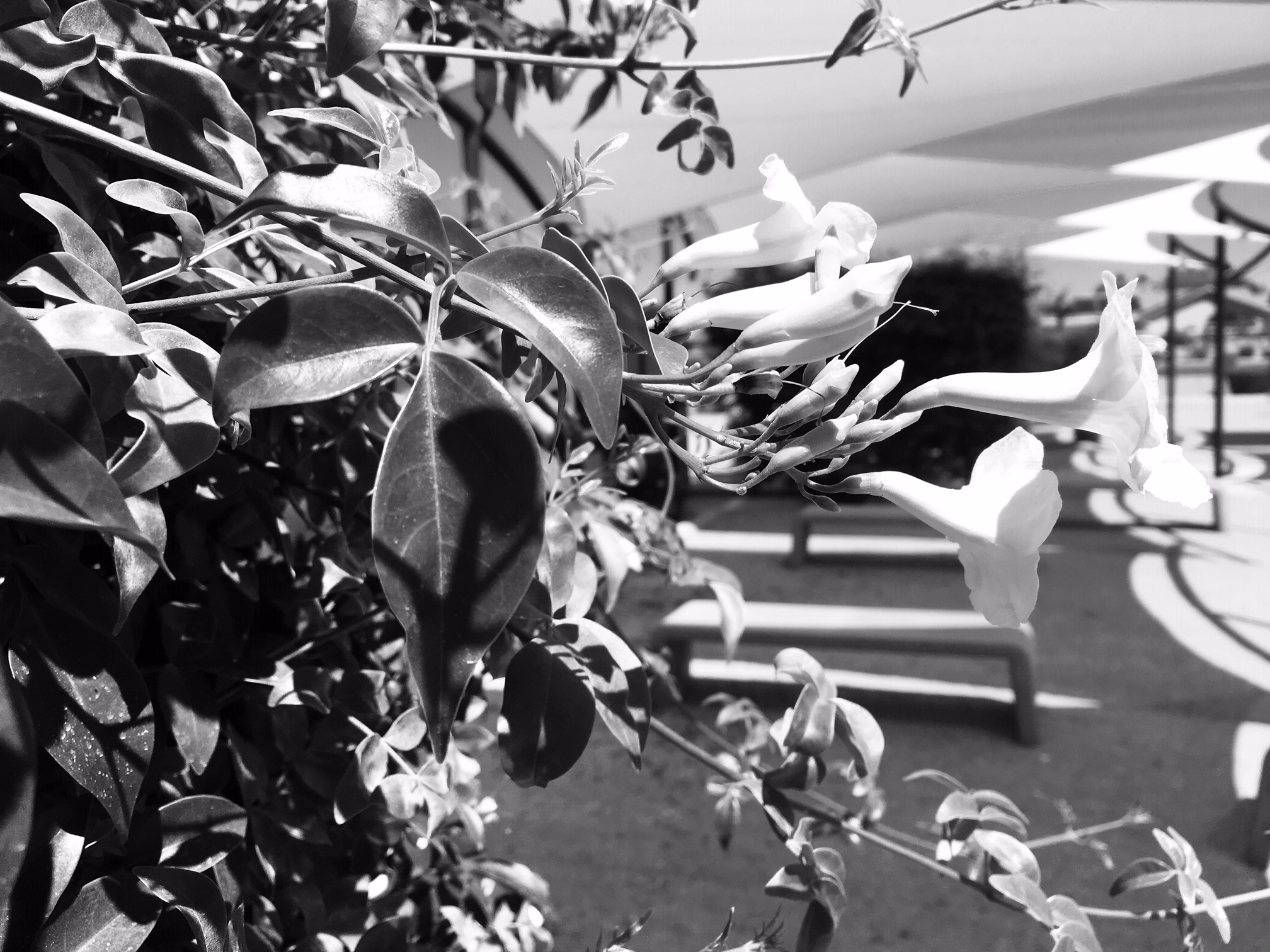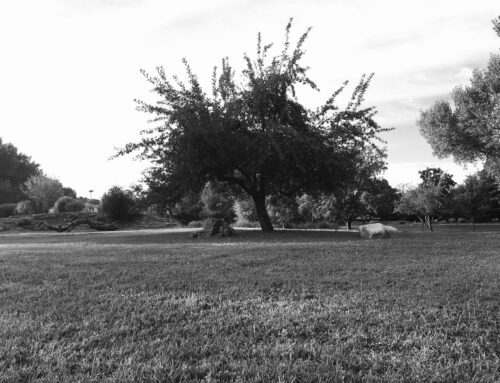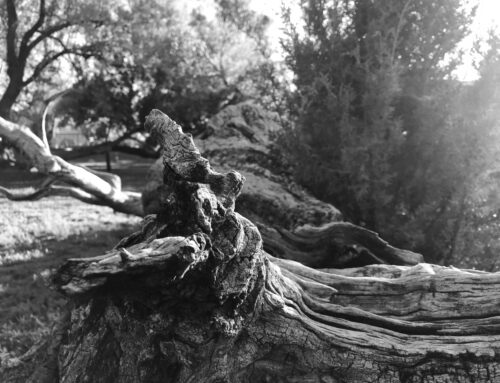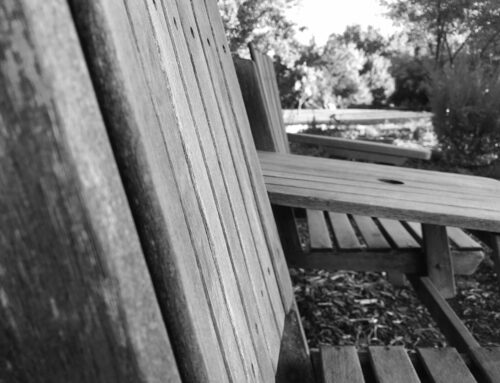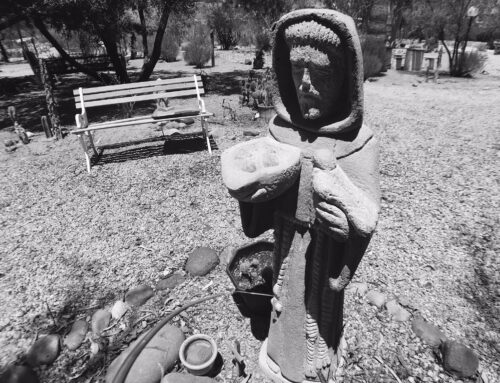Author Corrie Ten Boom, who experienced fame for her testimony of faith after World War II (which can be read about in her book The Hiding Place), was once asked how she remained humble through all the attention and fame. Her answer was,
“When Jesus rode into Jerusalem on Palm Sunday on the back of a donkey, and everyone was waving palm branches and throwing garments onto the road, and singing praises, do you think that for one moment it ever entered the head of that donkey that any of that was for him?” She continued, “If I can be the donkey on which Jesus Christ rides in his glory, I give him all the praise and all the honor.”
I love the humility that Corrie Ten Boom modeled in her life. And nowadays (lately), I’ve been noticing a need, necessity, and personal hunger to highlight the humble, spiritual discipline of secrecy. What is the discipline of secrecy? Perhaps we can call it the spiritual practice of hiddenness. With social media, we live in a world of selfies, YouTube channels, and Instagram filters, and there is the cultural posture of ‘look at me’ more than ever before. However, the invitation of the Kingdom involves a reorientation away from ourselves to Christ and His agape love; to focus on others.
As we look at the life and ministry of Christ, this is such a beautiful thing to see at work. Even His first miracle of turning water into wine at the wedding celebration at Cana (John 2:1-12), was done so (seemingly) reluctantly. When his mother approached him with the problem at hand (something as seemingly inconsequential as wine), He said, “Dear woman, why come to me? My time has not yet come.” Yet Mary persisted and said, “Do whatever he tells you to do.” In the Gospel of Mark we see two occasions (Mark chapter 1 and chapter 7) of Jesus healing people, and then telling them to ‘not tell anyone.’ We see John the baptizer move into hiddenness when he says “He [Jesus] must increase, but I must decrease.” Jesus, not interested in the praise of man, gets to the heart of the matter in the Sermon on the Mount, when He says,
Matthew 6 “Be careful! When you do good things, don’t do them in front of people to be seen by them. If you do that, you will have no reward from your Father in heaven.
“When you give to the poor, don’t be like the hypocrites. They blow trumpets in the synagogues and on the streets so that people will see them and honor them. I tell you the truth, those hypocrites already have their full reward. So when you give to the poor, don’t let anyone know what you are doing. Your giving should be done in secret. Your Father can see what is done in secret, and he will reward you.
“When you pray, don’t be like the hypocrites. They love to stand in the synagogues and on the street corners and pray so people will see them. I tell you the truth, they already have their full reward. When you pray, you should go into your room and close the door and pray to your Father who cannot be seen. Your Father can see what is done in secret, and he will reward you.
Who Are We Fooling? – Time For a Reorientation
It seems that the U.S. church culture has built within it an outward ‘piety,’ and I believe our wider society has witnessed this element to be more smoke and mirrors than anything else. There has been a lack of congruency between the message of Christ and the way those who say that they follow Jesus actually live. The ‘woe’ that Jesus gave to the scribes and Pharisees of His day rings true in our culture as well: “You clean the outside of the cup and the plate, but inside they are full of greed and self-indulgence” (Matthew 23:25). We’ve seen pastors of big churches ‘fall from grace’ in the public eye, and at its best, those experiences should make us cognizant of our own fragility and brokenness. Unfortunately, it often has not. It has resulted in some kind of comparison game of, “I’m not that bad,” instead of us falling on the grace of God – becoming more aware of how weak we also are. We all are weak, we all are sinful, we all need the ongoing, transforming grace of God in our lives. It’s the ongoing awareness of being the Brennan Manning-esque ragamuffins who are the “Unsung assembly of saved sinners, that are little in their own sight and aware of their brokenness, their powerlessness before God. A Ragamuffin knows he’s a beggar at the door of Gods Mercy.”
This reorientation should be liberating. You/we no longer need to perform. I have been continually reminded and challenged of the calling to hiddenness in following Jesus by something that a friend of mine, Pastor Graeme Sellers, wrote in his book The Dangerous Kind,
The push to be seen, to be somebody, to have power and influence – these are alien to the strategy Jesus lays out for His closest friends. “You know how it is in this world, ” Jesus says, “how leadership is reduced to lordship, how those who are in authority demonstrate it by controlling, manipulating, and punishing those under their thumbs. Well, that’s one way to do it. But it’s not the way you’re going to do it. Lead and go low. Lead and serve. Lead and give preference to the last. Lead and love. Here’s the lowdown: leaders take love seriously but they take themselves with a grain of salt. They hold the hurting, rejected, lonely, damaged. They hold more hearts and more hands, not more press conferences. (pg. 80-90).
Praxis
So, the question of how we practice this is a serious one to consider, because we really do have to ask, “Why do we do what we do?” This is an inside-out invitation (an inward reality that results in an outward expression), and we really do have to grapple with the question, “Do we really believe that this is about God’s love, or is it about our own recognition?” To love without the ‘look at me’ proclamation contains the joyful liberation of a love that does not boast, is not proud or self-seeking, and is learning how to persevere. I’m learning that practicing the spiritual discipline of secrecy is helping to cultivate a simplicity of heart.
So, here are some ideas of how to walk this out:
- Let go of judgment and comparison: I think it is important to be introspective in asking the question of motivation. What if we took off the judge’s robe that we are so tempted to wear? What if we decided not to broadcast opinion and instead pray? What if we choose the joy of connection, forgiveness, showing mercy, giving grace, instead of the us-versus-them game of our culture? I have a feeling we may learn a lot about love and experience the presence of God.
- Go out of your way to help, and don’t tell anyone: Someone drops something, pick it up for them; do something that will make someone’s life easier; give anonymously, or encourage someone. Serve or volunteer and keep it social media free: don’t selfie it, or make it a story on Instagram or Facebook. You could have fun with it, just do it anonymously – make it a literal secret – find joy in blessing others without them being aware of who it is.
- Examen Prayer for hiddenness: The Examen Prayer has been a useful prayer rhythm for me, and doing it within the context of hiddenness is something that I’ve been trying out.
- Thankfulness: Thanking the Lord for the day, and inviting Him to be present as I search my heart in the context of the day.
- Thinking back over the day: Reviewing the day, remembering the highlights, considering feelings and sensations.
- Where did I experience the joy of hiddenness?: Did I experience a just-me-and-God moment, where there were no strings attached?
- Where did I notice my desire for recognition?: When did I do something in the name of love, from a motivation of recognition? It seems that I/we do this without even thinking about it.
- Prayer for the grace to live in loving humility and hiddenness: Pray for the grace to live life in joyful hiddenness.
May we, like Corrie Ten Boom, find joy in the humility of being the donkey that Jesus rides into His glory. Bless you as you consider, and hopefully practice, the spiritual discipline of secrecy.

